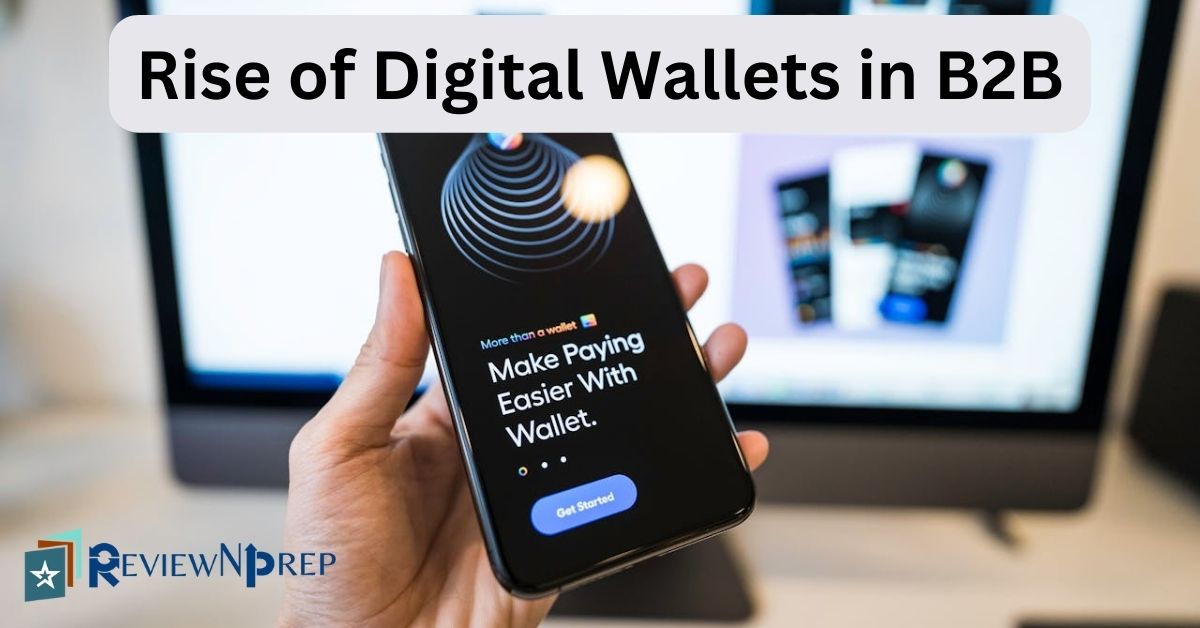|
|
In recent years, the landscape of business-to-business (B2B) transactions has been undergoing a significant transformation driven by technological advancements.
One of the most notable changes is the increasing adoption of digital wallets as a means of facilitating payments between businesses.
Once primarily associated with consumer transactions, digital wallets are now revolutionizing the way B2B payments are made, offering greater efficiency, security, and convenience.
According to a recent study titled “Tapping the Payments Opportunity in SMB Retail” by PYMNTS Intelligence, a staggering 65% of small and medium-sized businesses (SMBs) are dedicating approximately 14 hours per week to administrative tasks related to payment collection.
Digital wallets emerge as a solution offering a streamlined, secure, and efficient approach to managing B2B payments.
The Traditional B2B Payment Landscape
Traditionally, B2B payments have been characterized by manual processes, paper invoices, and lengthy payment cycles. These outdated methods often result in inefficiencies, delays, and higher transaction costs for businesses.
Moreover, the reliance on checks and wire transfers can introduce security vulnerabilities and increase the risk of fraud.
Recognizing the limitations of traditional payment methods, businesses are increasingly turning to digital solutions to streamline their B2B transactions. If you are a B2B business looking for digital solutions, read about Fortis Media here and their marketing targeted for your interests.
The Emergence of Digital Wallets in B2B
Digital wallets, also known as e-wallets or mobile wallets, have emerged as a modern alternative to traditional payment methods in the B2B space.
These electronic payment systems allow businesses to store and manage their payment credentials securely in digital form, eliminating the need for physical cards or checks.
By leveraging technologies such as near-field communication (NFC), biometric authentication, and tokenization, digital wallets offer a seamless and secure way to initiate and authorize transactions.
Key Benefits of Digital Wallets for B2B Transactions
The adoption of digital wallets in B2B transactions offers a myriad of benefits for businesses:
Efficiency:
Digital wallets enable faster payment processing, reducing the time and resources spent on manual reconciliation and invoice handling. With just a few clicks, businesses can initiate payments and settle transactions in real-time, improving cash flow and liquidity management.
Convenience:
Digital wallets provide businesses with greater flexibility and convenience when making payments. Whether it’s from a desktop computer or a mobile device, users can securely access their digital wallet and initiate transactions anytime, anywhere, without the need for physical payment instruments.
Security:
Digital wallets employ advanced security measures such as encryption, tokenization, and multi-factor authentication to safeguard payment credentials and sensitive financial information. This helps mitigate the risk of data breaches, identity theft, and fraudulent activities, providing businesses with peace of mind when conducting transactions online.
Cost Savings:
By streamlining payment processes and reducing the reliance on paper-based methods, digital wallets can help businesses lower transaction costs and overhead expenses associated with B2B payments. Additionally, the automation of repetitive tasks reduces the need for manual intervention, freeing up resources for other strategic initiatives.
Enhanced Visibility and Control:
Digital wallets offer businesses greater visibility and control over their payment activities through real-time reporting and analytics. By centralizing payment data and transaction history, businesses can track and reconcile payments more efficiently, enabling better decision-making and financial management.
Challenges and Considerations
While the adoption of digital wallets in B2B transactions presents numerous benefits, it also poses certain challenges and considerations for businesses:
Integration Complexity: Integrating digital wallet solutions with existing enterprise systems and payment platforms can be complex and require technical expertise. Businesses must ensure seamless integration with their accounting, ERP, and treasury management systems to fully leverage the benefits of digital wallets.
Security Concerns:
Despite advancements in security technology, digital wallets are not immune to security risks and cyber threats. Businesses must implement robust security measures, such as encryption, authentication, and fraud detection, to protect against unauthorized access and data breaches.
Regulatory Compliance:
The use of digital wallets in B2B transactions may be subject to regulatory requirements and compliance standards, depending on the jurisdiction and industry. Businesses must stay informed about relevant regulations, such as PSD2 in Europe, and ensure compliance with data protection and privacy laws.
Vendor Selection:
With a growing number of digital wallet providers in the market, businesses must carefully evaluate vendors based on factors such as security, reliability, scalability, and customer support. Choosing the right digital wallet solution provider is crucial to ensuring a seamless and successful implementation.
The Future of B2B Payments
As digital transformation continues to reshape the business landscape, the adoption of digital wallets in B2B transactions is expected to accelerate. Innovations such as blockchain technology, artificial intelligence, and machine learning are further enhancing the capabilities of digital wallet solutions, paving the way for new use cases and functionalities in B2B payments.
In conclusion, the rise of digital wallets in B2B represents a paradigm shift in payment processes, offering businesses unprecedented efficiency, security, and convenience. By embracing digital wallet solutions, businesses can streamline their payment workflows, reduce costs, and gain a competitive edge in today’s fast-paced digital economy.
Further Reading:


Have questions or want to help the community? Share here.
We encourage our readers to share their unique experiences or ask questions to create a helpful and informative community. Our editors will also review every comment before publishing, ensuring our commitment to this community.